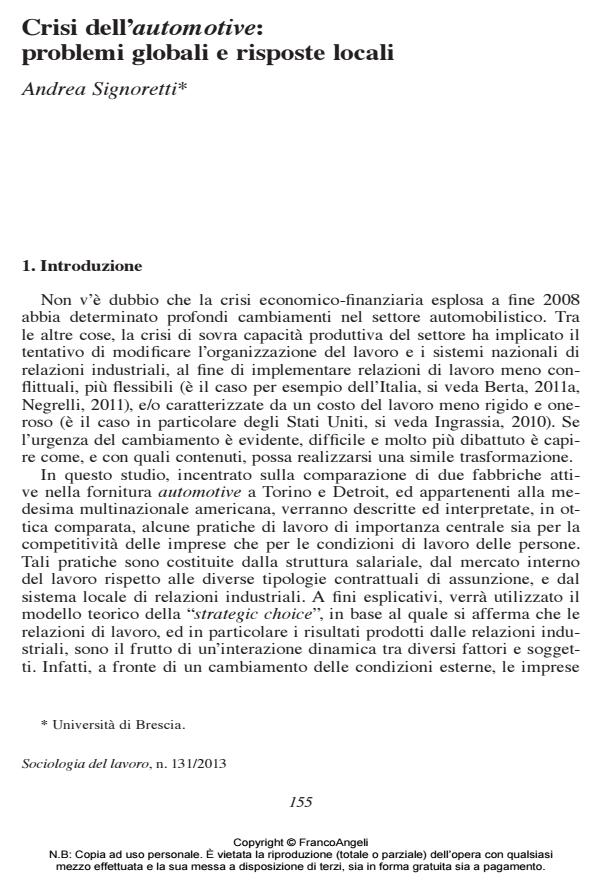Automotive crises: global problems and local answers
Journal title SOCIOLOGIA DEL LAVORO
Author/s Andrea Signoretti
Publishing Year 2013 Issue 2013/131
Language Italian Pages 14 P. 155-168 File size 300 KB
DOI 10.3280/SL2013-131010
DOI is like a bar code for intellectual property: to have more infomation
click here
Below, you can see the article first page
If you want to buy this article in PDF format, you can do it, following the instructions to buy download credits

FrancoAngeli is member of Publishers International Linking Association, Inc (PILA), a not-for-profit association which run the CrossRef service enabling links to and from online scholarly content.
The article analyses, in a comparative view, the characteristics of some fundamental employment practices in two plants operating in the supply chain in Turin and Detroit, and belonging to the same American multinational company. The explanatory framework is constituted by the strategic choice model, according to which employment practices should be interpreted in reference to the interconnection of social actors’ strategic choice, constrained by the economic and institutional context. Another goal of the paper is to verify, in the light of the recent changes occurred in the field of employment relations within some car makers in Italy and United States, if the crisis is analogously causing relevant transformations in the supply chain.
Keywords: Industrial relations, working conditions, automotive crisis, Turin and Detroit, strategic choice, flexibility
Andrea Signoretti, Crisi dell’automotive: problemi globali e risposte locali in "SOCIOLOGIA DEL LAVORO " 131/2013, pp 155-168, DOI: 10.3280/SL2013-131010